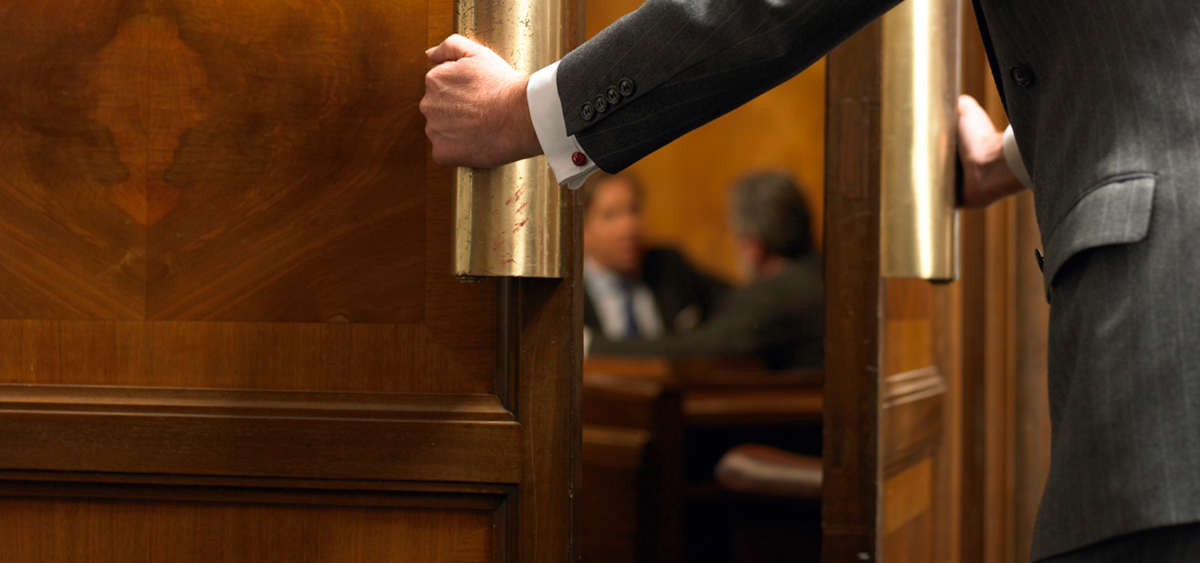As a general rule, courtrooms are open to the public. Most of the time, you can go to a courthouse and attend a case taking place. You can also usually check court records using the the digital tools available at the courthouse.
However, in some situations, the public does not have access and the doors of the courtroom will be closed to you. We say that these cases take place “in camera” or behind closed doors.

What does in camera mean?
In Latin, the word camera means “chamber” (room) so in camera means “in chambers” or “in private”, or behind closed doors. This translation illustrates the idea behind in camera court cases: the public is not allowed to attend.
When a judge decides that a case is to be in camera, she can ask all the members of the public leave the room for the whole case or just part of it.
So if the hearing is in camera and you’re not one of the people, lawyers or witnesses involved in the case, you might not be let into the courtroom or could be asked to leave.
Why in camera hearings?
Judges favour keeping cases open to the public as much as possible. However, they have the power to order a case to be held in camera if they think it’s necessary. For example, they can do this if one of the people involved in the case is a victim of sexual assault.
A witness can also ask the court to testify in private. The witness must show the judge that this is necessary in the circumstances.
In other cases, the law requires that a hearing be held in camera. Here are a few examples:
Family cases
The law says that cases in family matters must be held in camera most of the time. These cases involve very personal subjects, such as divorce and child custody. To maintain the privacy of family members going through a difficult situation, it’s better if the case takes place in private. The public doesn’t need to know why a couple is separating or why a child would rather live with his father or mother following a divorce.
Youth protection cases
Youth protection cases are usually held in camera. People under age 18 benefit from special protections.
However, if someone under 18 commits a crime, the case won’t always be closed to the public.
Criminal cases are public, even those for people under 18 held in Youth Court. However, judges can decide to have certain people leave the room if they think their presence could be harmful to the young person.





